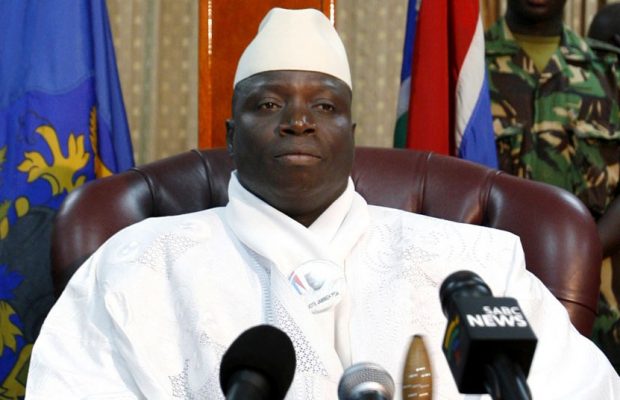West African leaders did not agree to grant Yahya Jammeh any immunity during negotiations that convinced Gambia’s longtime ruler to flee into exile, Senegal’s foreign minister said on Sunday.

Jammeh, who is accused of serious rights violations, led his country for 22 years but refused to accept defeat in a December election. He flew out of the capital Banjul late on Saturday as a regional military force was poised to remove him.
The peaceful end to the impasse will allow opposition figure Adama Barrow, who was sworn in as president at Gambia’s embassy in neighbouring Senegal on Thursday, to take office.
Jammeh’s decision to step down has prompted speculation over the terms agreed during two days of negotiations led by Guinea’s President Alpha Conde and Mohamed Ould Abdel Aziz of Mauritania.
Yahya Jammeh
Regional leaders had not gone as far as agreeing immunity despite Jammeh’s attempts to secure this, Senegalese Foreign Minister Mankeur Ndiaye told Reuters.
“President Jammeh and his team concocted a declaration to be endorsed by (regional bloc) ECOWAS, the United Nations and the African Union that gave him every guarantee, essentially impunity,” Mankeur Ndiaye said.
“This declaration was signed by no one.”
The foreign minister made his comments after the AU and the UN published a joint declaration from the three bodies “with the purpose of reaching a peaceful resolution to the political situation in The Gambia.”
In it, they pledged, among other things, to protect Jammeh’s rights “as a citizen, a party leader and a former Head of State”, to prevent the seizure of property belonging to him and his allies, and to ensure he can eventually return to Gambia.
However, Ndiaye played down the significance of the document.
“I want to be clear on the fact that no ECOWAS head of state validated this declaration,” said Ndiaye, who added that Barrow had not been made aware of the document before its publication.







